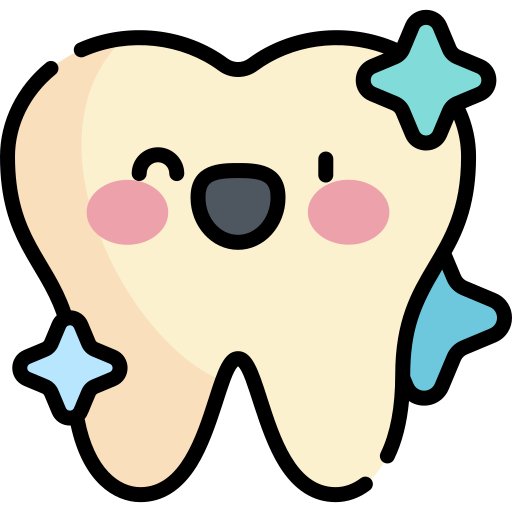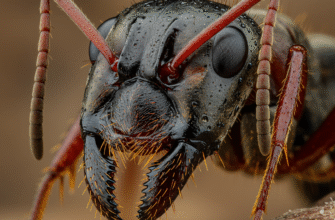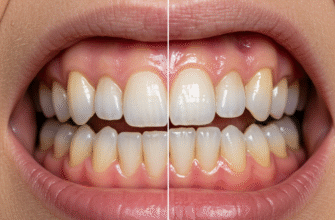It’s a milestone every parent cherishes: that first tiny tooth erupting through tender gums. While a cause for celebration, it’s also a gentle nudge from nature, signaling the start of an important journey – the journey of lifelong oral health. Many might think those initial “baby teeth” are just temporary placeholders, but their role in a child’s development is far more significant than often credited. Laying the groundwork for good dental habits right from the start isn’t just about preventing cavities; it’s about fostering overall well-being that can last a lifetime.
Why Those First Teeth Matter More Than You Think
Those pearly whites, technically known as primary teeth, are tiny powerhouses. They do so much more than just look cute in a gummy smile. They are essential for proper chewing and nutrition, allowing your little one to explore a variety of foods crucial for growth. They also play a vital role in speech development, helping children form sounds and words correctly. And let’s not forget their job as natural space maintainers; they hold the correct spacing in the jaw for the permanent teeth that will eventually follow. Losing a baby tooth too early due to decay or injury can cause a domino effect, leading to crowding or misalignment of adult teeth later on.
The common misconception that “they’re just baby teeth, they’ll fall out anyway” can unfortunately lead to a relaxed approach to their care. However, the health of these primary teeth directly impacts the health of the permanent teeth developing beneath them. Think of them as diligent guardians, paving the way for their successors.
The Ripple Effect of Early Dental Problems
Neglecting the care of primary teeth can invite a host of unwelcome guests. Tooth decay, often called cavities, is a prevalent issue in young children and can progress rapidly. If left unaddressed, decay in baby teeth can lead to painful infections, abscesses, and even affect the developing permanent tooth bud. This isn’t just a tooth problem; it can impact a child’s ability to eat comfortably, sleep soundly, and concentrate at school. Dental pain is a significant distracter and can contribute to missed school days and a general decline in a child’s quality of life.
Furthermore, extensive dental issues can sometimes necessitate more complex treatments, which can be stressful for both the child and the parents. Early intervention and, more importantly, prevention, are key to avoiding these scenarios.
Building a Foundation: The First Dental Visit
So, when should this crucial journey to the dentist begin? Most dental professionals and pediatric organizations recommend scheduling a child’s first dental visit around the time their first tooth appears, or by their first birthday – whichever comes first. This might seem surprisingly early to some, but it’s a proactive step with numerous benefits. This initial visit is often more about education and familiarization than intensive treatment.
During this “well-baby check-up” for the teeth, the dentist will gently examine your child’s mouth, checking for early signs of decay, assessing gum health, and monitoring jaw and tooth development. Equally important, it’s an opportunity for parents to receive valuable guidance on topics like proper brushing techniques for infants, teething advice, information on fluoride, and dietary habits that promote good oral health. The goal is to make the dental office a friendly, familiar place from a young age.
Professional dental associations often recommend a child’s first dental visit occur within six months of the first tooth erupting, or by their first birthday. These early visits are crucial for setting a child on the path to good oral health. They allow dentists to provide guidance to parents and identify any potential concerns early on, fostering a preventive rather than reactive approach to dental care.
Making it a Positive Experience
First impressions count, especially for little ones. To help ensure the initial dental visits are positive, parents can play a significant role. Talk about the dentist in a positive, upbeat way. You could read age-appropriate books about visiting the dentist or even role-play a visit at home, taking turns being the “dentist” and the “patient.” Choose a dental practice that is experienced with children; pediatric dentists, in particular, have specialized training and create environments designed to be welcoming and non-intimidating for young patients. On the day of the appointment, try to remain calm and reassuring yourself, as children often pick up on parental anxiety.
At-Home Care: The Daily Grind (in a Good Way!)
While dental visits are important checkpoints, the real heavy lifting of oral health happens at home, every single day. Establishing a consistent routine from the get-go is paramount. Even before the first tooth pokes through, you can gently wipe your baby’s gums with a clean, damp washcloth after feedings. Once that first tooth arrives, it’s time to introduce a toothbrush.
Brushing Basics for Little Ones
For children under three years old, use an infant toothbrush with soft bristles and a tiny smear of fluoride toothpaste, about the size of a grain of rice. For children aged three to six, a pea-sized amount of fluoride toothpaste is appropriate. It’s important to supervise brushing and teach them to spit out the toothpaste, not swallow it. Brush gently, using small circular motions, ensuring all surfaces of each tooth are cleaned – outer, inner, and chewing surfaces. Don’t forget to gently brush the tongue too! This routine should happen twice a day, ideally after breakfast and before bedtime. Young children lack the manual dexterity to brush effectively on their own, so parental assistance is usually needed until they are around seven or eight years old.
Make brushing fun! Use colorful toothbrushes, play a favorite two-minute song, or turn it into a game. The more enjoyable the experience, the less likely it is to become a daily battle.
Flossing – Yes, Even for Kids!
Flossing might seem like an advanced technique reserved for adults, but it’s just as important for children once their teeth start touching. This usually happens when the back molars come in. Toothbrushes can’t effectively clean between teeth, and that’s where food particles and plaque can hide, leading to cavities. Gently guide the floss between the teeth, curving it around each tooth in a C-shape. Child-friendly flossers with handles can make this task easier for both parents and, eventually, for children learning to do it themselves.
Diet’s Big Role in Dental Destiny
What your child eats and drinks has a massive impact on their dental health. Sugary foods and drinks are the primary fuel for cavity-causing bacteria. When these bacteria consume sugar, they produce acids that attack tooth enamel. Limiting sugary snacks, candies, cookies, and sweetened beverages (like juice and soda) is crucial. If sugary treats are given, it’s better to offer them with a meal rather than as frequent snacks throughout the day, as this limits the duration of acid attacks on the teeth.
Encourage water, especially between meals. Water helps rinse away food particles and doesn’t contribute to decay. Also, be mindful of prolonged bottle or sippy cup use, particularly with milk, formula, or juice, especially at bedtime or naptime. If a child falls asleep with liquid pooling around their teeth, it can lead to a severe form of decay often called “baby bottle tooth decay.” Transitioning to a regular cup as soon as they are able is a good goal.
The Dentist as a Partner in Your Child’s Oral Health
Think of your child’s dentist not just as someone who fixes problems, but as a vital partner in maintaining and promoting their oral health. Regular dental check-ups, typically every six months (though your dentist will recommend the best schedule for your child), are essential beyond that initial visit. These appointments allow the dental team to monitor growth and development, catch any emerging issues early, and provide ongoing preventive care.
During these visits, the dentist will thoroughly examine your child’s teeth and gums, checking for any signs of decay, assessing their bite, and ensuring that permanent teeth are erupting correctly. They can also offer professional cleanings to remove plaque and tartar that regular brushing might miss. Furthermore, these visits are a great time to reinforce good home care habits and answer any questions you might have about your child’s oral health journey.
Dentists may also discuss specific preventive measures tailored to your child’s needs. For example, topical fluoride treatments can help strengthen tooth enamel and make it more resistant to decay. Another common preventive measure, especially for the cavity-prone back teeth (molars), is the application of dental sealants. Sealants are thin, protective coatings painted onto the chewing surfaces of these molars, sealing out food particles and bacteria from the deep grooves and pits where cavities often start.
Cultivating Lifelong Healthy Habits
The habits and attitudes towards dental care formed in early childhood often carry through into adulthood. As parents, you are the primary role models. When children see you brushing and flossing regularly and speaking positively about dental visits, they are more likely to adopt similar attitudes and behaviors. Make dental care a normal, non-negotiable, and non-scary part of the daily family routine, just like bath time or getting dressed.
By prioritizing early dental care, you’re not just investing in a healthy smile; you’re contributing to your child’s overall health and confidence. Good oral health is linked to better general health, and a confident smile can positively impact social interactions and self-esteem. The effort put into establishing these foundational habits in the early years is a gift that will continue to benefit your child long after those baby teeth have been replaced by their permanent successors.
Remember, the journey to a lifetime of healthy smiles begins with that very first tooth and the caring, consistent habits established in those formative early years. It’s an investment in their future well-being, one smile at a time.








